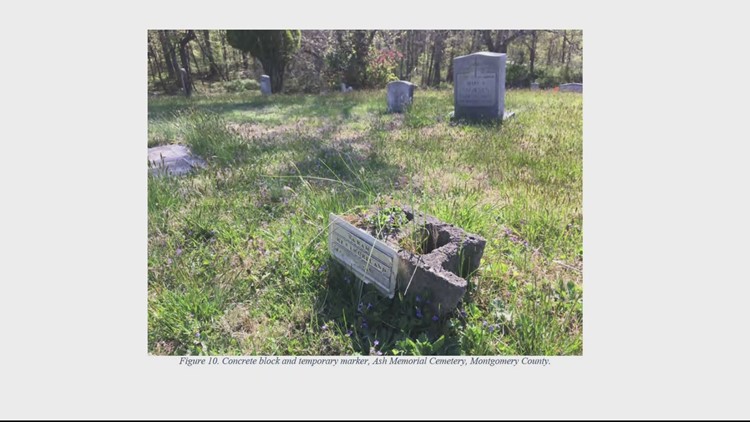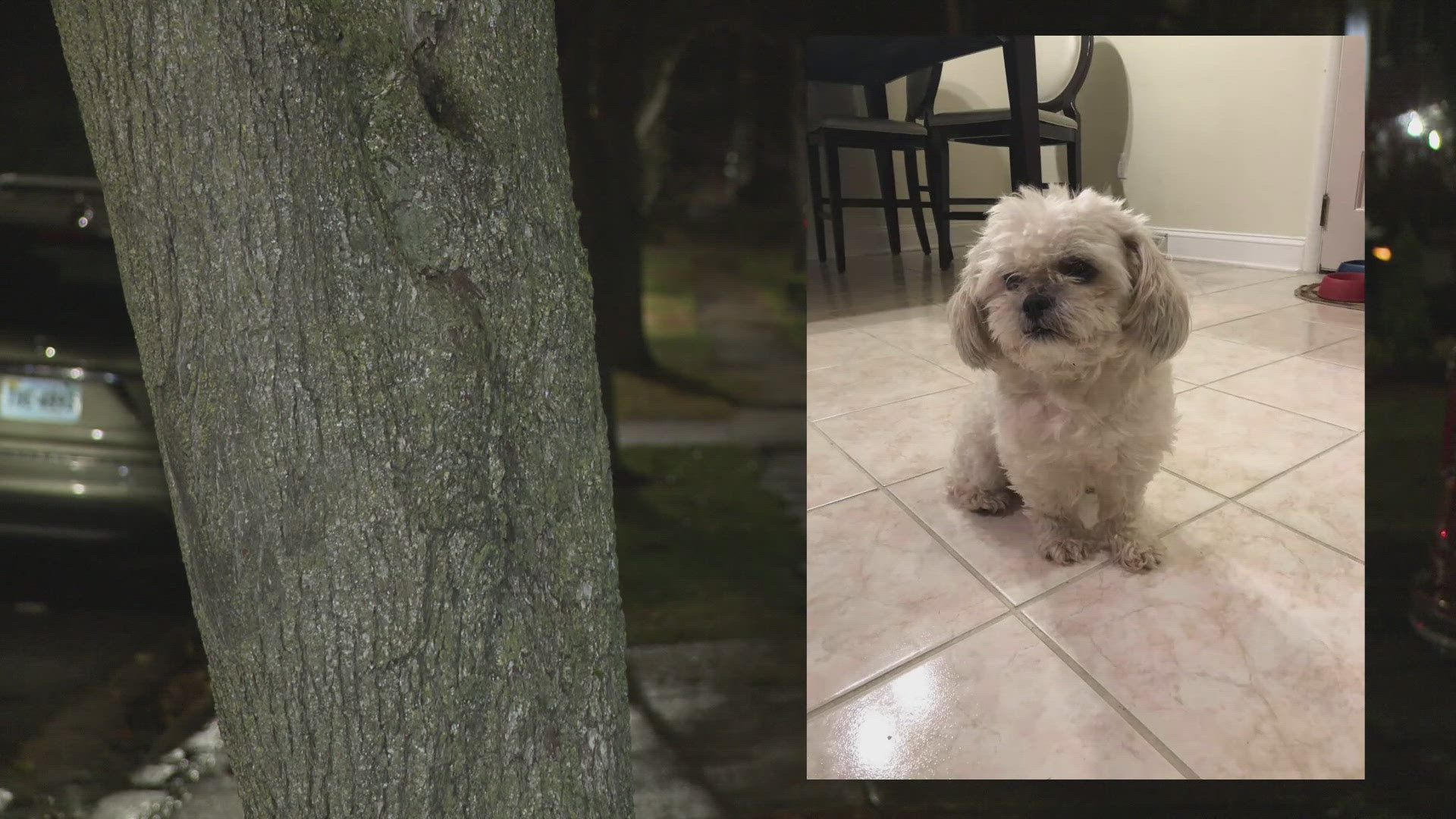BETHESDA, Md. — CORRECTION: A previous version of this story did not identify Dr. Jones as a paid consultant. It also mischaracterized a provision in the bill about the requirement to be a descendant of an African cemetery to apply for these grants. There are four different types of qualified applicants, but only one requires an applicant to be a descendant.
The Maryland general assembly recently held a hearing on a bill that would restore, preserve, and protect historical African American cemeteries. HB-1099, written by Maryland Del. Al Carr (D- Montgomery County), would create a fund that gives African Americans access to research that would help them learn more about their history and to preserve that history.
Del. Carr says HB-1099 is a repeat of a similar bill from last year that reflects amendments brought forward by the Maryland Department of Planning and various preservation groups. What resulted is a bill that addresses some of the requested changes, but not all of them.
The Bethesda African Cemetery Coalition (BACC), has been fighting to protect an historic African-African-American burial ground that dates back to slavery and post-emancipation on River Road. Macedonia Baptist Church is the only remaining descendant institution representing the interests of those buried in this area.
Dr. Marsha Coleman-Adebayo with the Bethesda African Cemetery Coalition (BACC) feels the bill gives too much power to the developers and established, white-led preservationists.
The BACC wants a series of amendments made to HB-1099. Those include:
- Allowing members of descendent communities to choose how their family and ancestors are remembered and celebrated.
- Allowing non-landowners to qualify for the fund
- Including accountability in the form of civil and criminal penalties for “the endemic racist destruction of historic Black burial grounds.”
- The exclusion of “developers and established, white-led preservation groups to divide descendent communities for profit.”
Del. Carr argues some of their proposed amendments don’t fall within the scope of this bill.
“This bill is not, you know, the perfect bill for them. It doesn't address a specific cemetery in Bethesda or on River Road or a specific group. It is intended to be a statewide bill that has broad support,” says Del. Carr.
“What many people don't recognize is African American cemeteries are not protected, the same way that other cemeteries are protected,” says Dr. Alexandra Jones.
Dr. Jones is an archaeologist and a trustee of Morningstar Tabernacle Order of Moses Cemetery, a historic African American cemetery in Montgomery County. She is also a paid consultant for the Bethesda Self Storage and 1784 Holdings LLC, developers at the center of controversy over the alleged desecration of Moses Cemetery.
According to Jones, some historical African American cemeteries are on privately owned land. In most cases, she says that land is not owned by the descendants of the African Americans that were laid to rest there.
“Other cemeteries are associated with a church or a structure and most African American cemeteries are not associated with that," Jones said.
Jones said that's because these African American burial sites were established either during enslavement or just after enslavement by individuals themselves.
Dr. Coleman-Adebayo disagrees with Dr. Jones on this point. African-American burials, says Coleman-Adebayo were always associated with a community, even during enslavement and followed many of the religious burial traditions from Africa or subsequently from Christianity. "It was the Black church that provided dignity and a resting place to Blacks in death while most white cemeteries were segregated, " said Coleman-Adebayo.
If the bill passes, Maryland Department of Planning will conduct a study of the issues facing historic African American burial grounds “in consultation with concerned stakeholders, including the Maryland historical trust and Maryland Commission on African American History and Culture, the Coalition to protect Maryland Burial Sites, Preservation Maryland and descendant communities of historic African American cemeteries.”
The proposed study will give suggestions for how these historic burial grounds can be identified, restored, maintained and protected. It will also advise ways these grounds can be commemorated.
Del. Carr said writing HB-1099 was very personal.
“I did have some ancestors that lived in Hagerstown in the 1880s, but I don't know if they're buried there,” he said.
Carr hopes that his bill will set the framework to restore, preserve and protect historical African American cemeteries within the state of Maryland. Dr. Jones agrees.
“This would effectively give African Americans an opportunity to use funding from the state, in order to inform all Marylanders about their history, their heritage, where people are placed, and actually put the people back into the larger narrative of Maryland history,” Jones said.
Coleman-Adebayo with the Bethesda African Cemetery Coalition (BACC) has other concerns about the bill as well.
“As the bill stands right now, if you’re not a landowner you do not have access to the funds,” argues Coleman-Adebayo.
According to the HB-1099, there are four types of qualified applicants who can apply for the grant:
- Non-profit organization
- A political subdivision
- An individual; or
- A community organization
If a community organization applies for a grant, according to the bill, they must “be led by an individual belonging to the descendent community of a historic African American cemetery” and be “formed for the purpose of identifying, preserving, or maintaining the historic African American cemetery.”
Del. Carr says this provision in the bill requiring community organizations to be led by a member of the descendant community was included in consultation with the BACC.
While there isn’t a dollar amount attached to the bill, supporters say this is the first step to securing the funding needed to protect historic burial grounds, such as River Road Moses Cemetery in Bethesda.
Finding Whites Tabernacles No. 39 Moses Cemetery on River Road isn’t very easy. There aren’t any land markers nor gravestones to mark the area, but people who have studied the land say it could contain the remains of at least a dozen African Americans.
Coleman-Adebayo says she isn’t a descendant of someone buried in River Road Moses Cemetery but is tied to the community through her husband who is pastor of Macedonia Baptist Church located on River Road.
According to a publication of the Historical Society of Washington, D.C., Macedonia Baptist Church is one of the only remnants of the small African American community that once inhabited River Road at the turn of the 20th century.
Coleman-Adebayo referred to the development around River Road Moses Cemetery as “the scene of a humanitarian crisis.”
"Not only are we killed while we are alive but when we’re dead, they literally dig us up and send us into landfills," she said.
Coleman-Adebayo claims in the summer of 2020 she saw 60-70 dump trucks remove material evidence from the construction site.
“We followed one of the trucks and once we got to the landfill there was a steamer there that steamed all of the materials that came out of this place and then they crushed it,” she said.
According to Jones, who oversaw the development of the land surrounding River Road Moses Cemetery, no remains were sent to landfills, nor destroyed.
Following the hearing, HB-1099 is now in the hands of the Appropriations Committee. They can decide to make changes to the bill, they can kill the bill or they can they can pass it. If it passes committee, it will go to the Maryland House of Delegates for a vote. If it passes the House of Delegates the whole process starts over again in the Maryland Senate.



